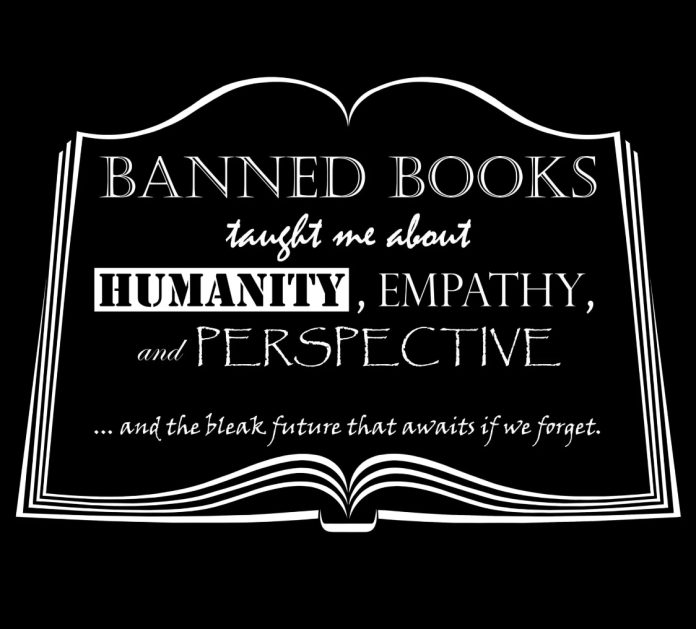In Britain today, an unsettling pattern is taking shape: far-right pressure groups and even school pupils themselves are engaging in acts of censorship that echo, with chilling familiarity, the authoritarian methods of Nazi Germany. Where once it was black-shirted paramilitaries and orchestrated bonfires, now it is covert campaigns, social media harassment, and quiet removals from library shelves. The target, however, remains the same — books and ideas that challenge their worldview.
Library staff across the UK are sounding the alarm. Though the wave of censorship engulfing the United States — where a staggering 72% of book bans are driven by organised pressure groups — has not yet fully broken over Britain, its influence is unmistakable. “The situation here is nowhere near as bad,” acknowledged Louis Coiffait-Gunn, chief executive of the Chartered Institute of Library and Information Professionals (Cilip), “but there are deeply worrying examples of library professionals losing their jobs and being trolled online for standing up for intellectual freedom.”
In the UK, requests to remove books have been increasing, according to anecdotal evidence collected by Libraries Connected and the School Library Association (SLA). While much of this pressure originates from individuals or small, local groups, there are clear signs that the methods — and even materials — of US groups are seeping into British schools and libraries. Alison Hicks, an associate professor at University College London, reported that one school librarian discovered propaganda from an American pressure group left on her desk. Another librarian interviewed had been directly targeted by such a group. Even the simple act of promoting free book giveaways online has led to coordinated trolling campaigns from across the Atlantic.
But perhaps most disturbing is the active role being played by some British school pupils, whose actions betray an alarming radicalisation. Hicks’ research, published in The School Librarian, revealed cases of students defacing library books with racist and homophobic slurs, vandalising materials, and destroying posters and displays promoting inclusivity. “This grassroots censorship by young people is not something I have seen in the US,” Hicks said, highlighting the particular danger of such internalised hostility within the school environment.
The parallels with Nazi tactics cannot be ignored. In the early 1930s, Hitler’s supporters — many of them youth — led campaigns to purge “degenerate” art and literature, culminating in public burnings of works by Jewish, socialist, and progressive authors. Today, while the flames may be digital or metaphorical, the intent remains disturbingly similar: to erase ideas that threaten a rigid ideological purity.
The books under attack in Britain reveal much about the motivations of the censors. Hicks’ research shows that almost every challenge focused on LGBTQ+ narratives. Alice Oseman’s Heartstopper series, which celebrates the love story of two schoolboys, has been a frequent target, alongside Tom Percival’s Billy’s Bravery, a tale of a boy who dreams of dressing as his favourite superhero, Nature Girl. Even books with “coded” narratives, where themes of identity and acceptance are subtly woven in, have not escaped scrutiny.
A survey by Index on Censorship corroborated these findings: more than half of the librarians who reported censorship attempts had been asked to remove LGBTQ+ titles, and many complied. Meanwhile, Cilip’s own 2023 study showed that a third of UK librarians had faced public requests to censor or remove books, with themes of race and empire also drawing the ire of challengers.
What unites these attacks is a common objective: to push marginalised voices out of sight. “My research demonstrates that UK school librarians are facing equivalent levels of distress and hostility in the face of book ban challenges such as these,” Hicks warned. “The attacks may play out differently here than in the US, but the impact is just as severe.”
The broader concern, however, lies not just in the isolated incidents but in their cumulative effect. Ed Jewell of Libraries Connected voiced fears of a chilling atmosphere where libraries pre-emptively avoid stocking certain books or hosting inclusive events, simply to steer clear of backlash. “It’s vital that libraries feel able to provide access to a wide range of perspectives if they are to facilitate the free exchange of ideas,” he urged.
Unlike the US, where legislative bans have swept across several states, Britain’s defence against such campaigns rests heavily on professional ethics. Most UK libraries adhere to the CILIP ethical framework, which insists that materials should not be restricted except by law. But as Coiffait-Gunn noted, the bigger challenge is evidencing what does not happen: “It’s hard to track which books quietly disappear or which topics are avoided out of fear.”
For many librarians, solidarity with their American counterparts provides some comfort, yet they remain deeply concerned. “Library leaders in the UK are paying close attention to what’s happening in the US,” said Jewell, “and there’s definitely a strong feeling of solidarity with American librarians.” But there is also growing anxiety that Britain’s own climate of political polarisation could soon escalate into the same widespread purges of knowledge.
As history has taught us, the suppression of books is rarely an end in itself. It is a signal — and a tool — of wider social control. Whether through fire or fear, the result is the same: marginalised communities are silenced, society is deprived of its diversity of thought, and the seeds of intolerance are sown ever deeper.
The lesson from history is clear, and it is urgent. The quiet removal of books today may not yet resemble the infamous bonfires of the past, but the intent — and the danger — are all too familiar.







